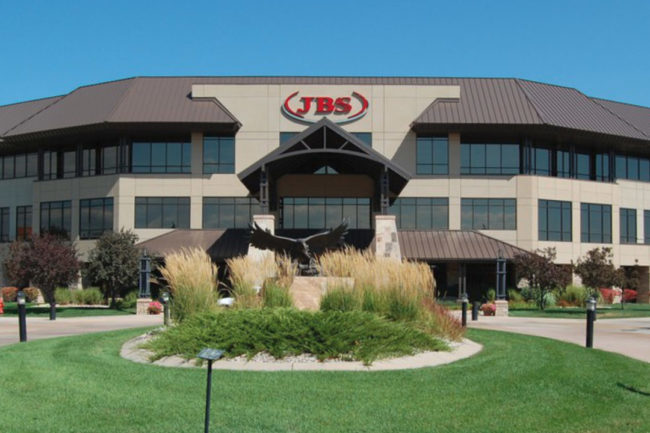GREELEY, COLO. – JBS USA shared information on its 2020 Sustainability Report on July 14. The report gives details about the company’s sustainability actions in North America, the United Kingdom, Europe, Australia and New Zealand.
“Our sustainability promise is stronger than ever, as we deliver on our goals and continue to raise the bar for more sustainable food production,” said Andre Nogueira, chief executive officer for JBS USA. “We have established a new vision for our company that will guide our path forward in support of our net zero by 2040 commitment, announced in March. We’re focused on providing delicious food that’s good for people and the planet.”
JBS said it completed its 2020 sustainability goals that were established three years earlier. During that time period the company said it reduced greenhouse gas emission intensity by 20%, reduced electricity use intensity by 14%, reduced water use intensity by 10% and improved safety index performance by 56%.
“The JBS USA 2020 Sustainability Report details both our recent progress and our journey to being the best in all we do,” Nogueira said. “Our responsibility as a global food company has never been greater, and it will take the entire value chain to make an impactful difference as we move forward. None of our accomplishments would be possible without our team members, farmer and rancher partners, customers and shareholders who are so vital to our success.”
JBS has also set the goal of net-zero greenhouse gas emissions by 2040. Other targets set by the meat and poultry processor include reducing scope 1+2 GHG emission intensity by 30% by 2030. The company also wants to reach 60% renewable electricity and reduce water use intensity by 15% by 2030.
Other investments include $1 billion in emission reduction projects in company facilities over the next 10 years and $100 million in R&D projects to assist producer efforts to strengthen and scale regenerative farming practices.
By 2030, JBS also said it would improve performance in the JBS Global Safety Index by 30% and develop a globally aligned animal welfare scorecard.
Senior executive compensation considerations to performance will be tied against environmental goals and align interim targets to SBTi criteria.
Lastly, JBS pledged to eliminate illegal deforestation from Brazilian cattle supply chain — including suppliers of suppliers — in the Amazon and other Brazilian biomes by 2025 and advance traceability to assure deforestation-free supply chains
More information on the 2020 JBS USA Sustainability Report can be found here.


